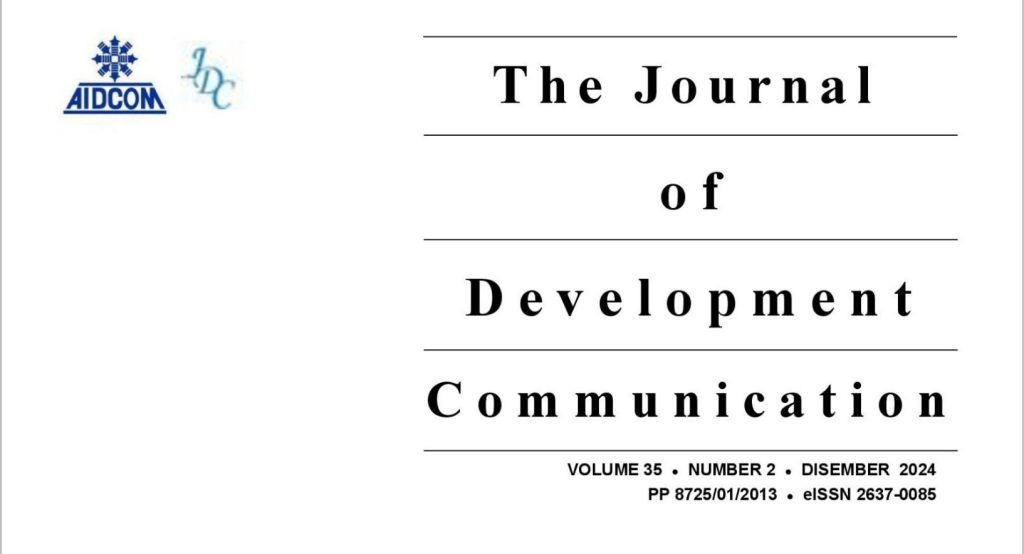The Journal of Development Communication Vol. 35 No. 2 December 2024 Author: Audu Liberty Oseni
Abstract
Effective communication that will enable rural farmers in the Federal Capital Territory Abuja (FCT-Abuja) to adequately understand climate change issues has continued to be a major barrier in mobilizing them for mitigation and adaptation practices. In a study population of predominantly rural farmers in the Dobi community of Gwagwalada Area Council of FCT-Abuja, this study was carried out to provide an understanding of the role of effective communication in climate change mitigation and adaptation. Using Participatory Communication Theory and primary sources of data gathering and analysis methods through Focused Group Discussion and Key Informant Interviews, the study found that climate change communication targeting rural farmers is ineffective because the state and non-state actors rely on the use of English as a language of communication while targeting rural farmers who rely on Indigenous languages as a means of social interaction. The study also found that the use of Indigenous communication strategies is the most appropriate means of climate change communication among the Dobi people because they rely on it as the most acceptable and effective way of communication among themselves. The study established that the lack of community participatory practice in climate change communication results in the rural farmers’ poor understanding of the issues. Therefore, the study concluded that the non-involvement of rural farmers in the climate change communication process, and the adoption of English as a language of climate change communication disproportionately affect their understanding of the issues, resulting in poor mitigation and adaptation practices. Hence, the study recommended the active involvement of rural farmers in the communication process and the adoption of local languages for effective climate change communication when targeting rural farmers and population.
Keywords: adaptation, climate change, communication, mitigation, rural farmers

